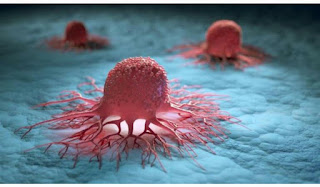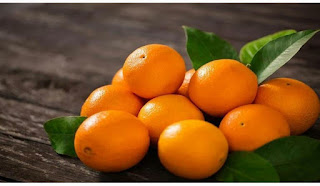Cancer occurs when cells switch from contributing to a healthy process in the body to those that attack it. And this disease, is the second largest killer in the world, and one of the greatest enemies of science.
And while much of the focus is on interactive cancer treatments, a lot of research is also studying how to prevent the disease.
And a study conducted in 2019, by researchers from Edith Cowan University, believed that they had found five foods that could prevent the emergence of the condition, thanks to the presence of a certain chemical group in them, according to the “Russia Today” website.
type of polyphonic secondary metabolite found in plants. In other words, it is a group of compounds found in common fruits and vegetables.
Flavonoids, like other natural compounds, can have a range of benefits depending on which flavonoids are present in which food and in which formulation. And some can have anti-inflammatory benefits or reduce the risk of cancer.
The researchers found that flavonoids can help reduce cancer risk in their paper, published in Nature Communications.
However, while the group said it had identified an association between flavonoids and a reduced risk of cancer, they were unable to identify a cause-and-effect link because their study was observational rather than causal.
What foods do they recommend?
The researchers recommended five foods that were particularly rich in flavonoids and identified doses to eat, which included:
• One cup of tea
• one apple
• one orange
• 100 grams of blueberries
• 100 grams of broccoli
These amounts would provide a wide range of flavonoids and "more than 500 mg of total flavonoids," the researchers said. Furthermore, due to the variety of sources, they can be spread over the course of a single day and are not limited to just one food group.
"These findings are important because they highlight the potential for preventing cancer by encouraging consumption of foods rich in flavonoids, especially in people at high risk," said lead researcher on the project, Dr. Nicolas Bondono, when the study was published.
Although flavonoids can help reduce risk, that doesn't mean they should be treated as a "golden ticket" to a cancer-free life, the researchers explained.
Dr Bondono explained: "It is also important to note that consuming flavonoids does not negate all of the increased risk of death from smoking and heavy alcohol consumption. The best thing to do for your health is to quit smoking and reduce alcohol."
Dr. Bondono noted that the team's next step is to further research the use of flavonoids and determine why they can help reduce cancer risk.
"Flavonoids have been shown to be anti-inflammatory and improve blood vessel function, which may explain why they are associated with a lower risk of death from heart disease and cancer."
Furthermore, outside of the flavonoid science properties, research highlights the importance of a balanced diet in maintaining overall health.






